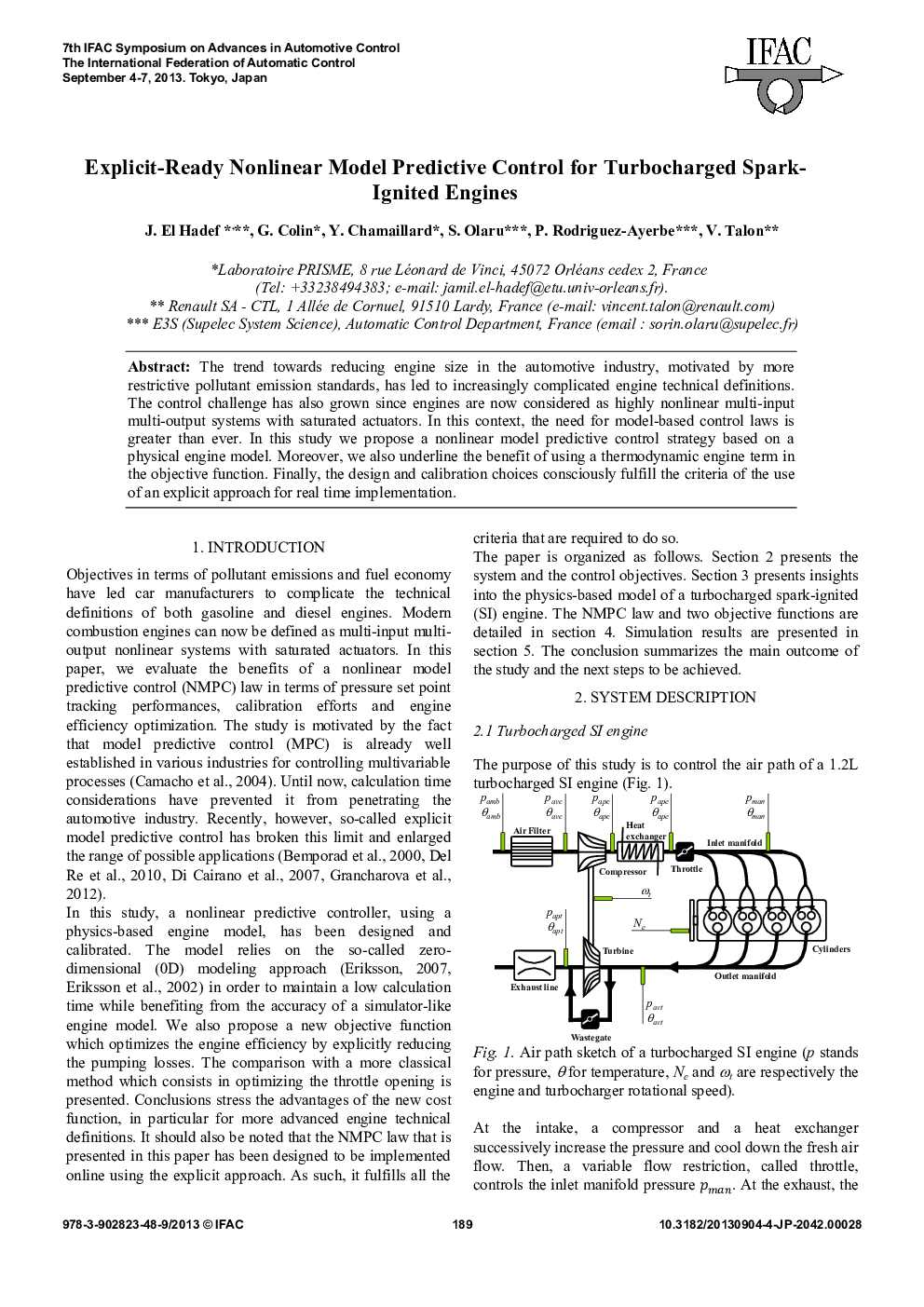| Article ID | Journal | Published Year | Pages | File Type |
|---|---|---|---|---|
| 715574 | IFAC Proceedings Volumes | 2013 | 6 Pages |
The trend towards reducing engine size in the automotive industry, motivated by more restrictive pollutant emission standards, has led to increasingly complicated engine technical definitions. The control challenge has also grown since engines are now considered as highly nonlinear multi-input multi-output systems with saturated actuators. In this context, the need for model-based control laws is greater than ever. In this study we propose a nonlinear model predictive control strategy based on a physical engine model. Moreover, we also underline the benefit of using a thermodynamic engine term in the objective function. Finally, the design and calibration choices consciously fulfill the criteria of the use of an explicit approach for real time implementation.
